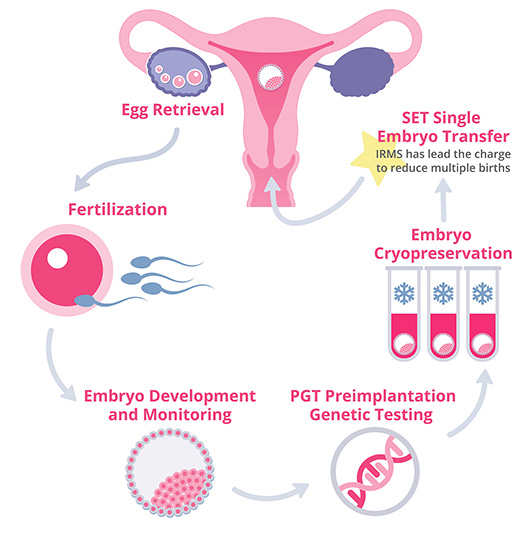Life comes full cycle with In Vitro Fertilization
A complex series of procedures used to help with fertility issues and prevent genetic problems, and assist with the conception of a child, In vitro fertilization (IVF) collects mature eggs from ovaries, fertilized by sperms and retrieves them in a lab.
Then the fertilized egg (embryo) or eggs (embryos) are transferred to a uterus. A full cycle of IVF takes about three weeks, sometimes the steps are split into different parts and the process may take longer.
Why choose IVF?
One may go in for Intrauterine Insemination (IUI) in the following cases:
- Tubal diseases like blocked or damaged tubes
- Endometriosis
- Unexplained infertility
- Immunological problems
- Male factor infertility
- PCOD





